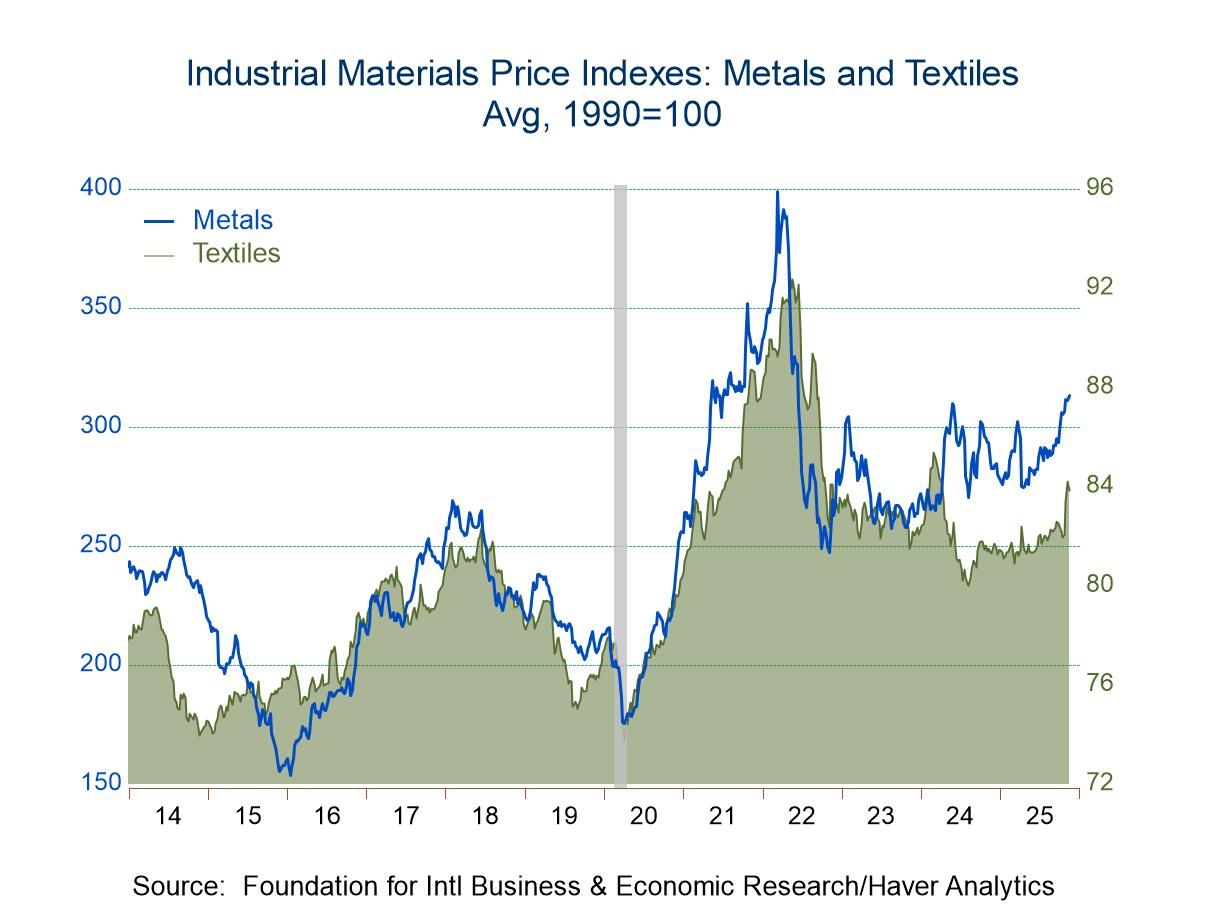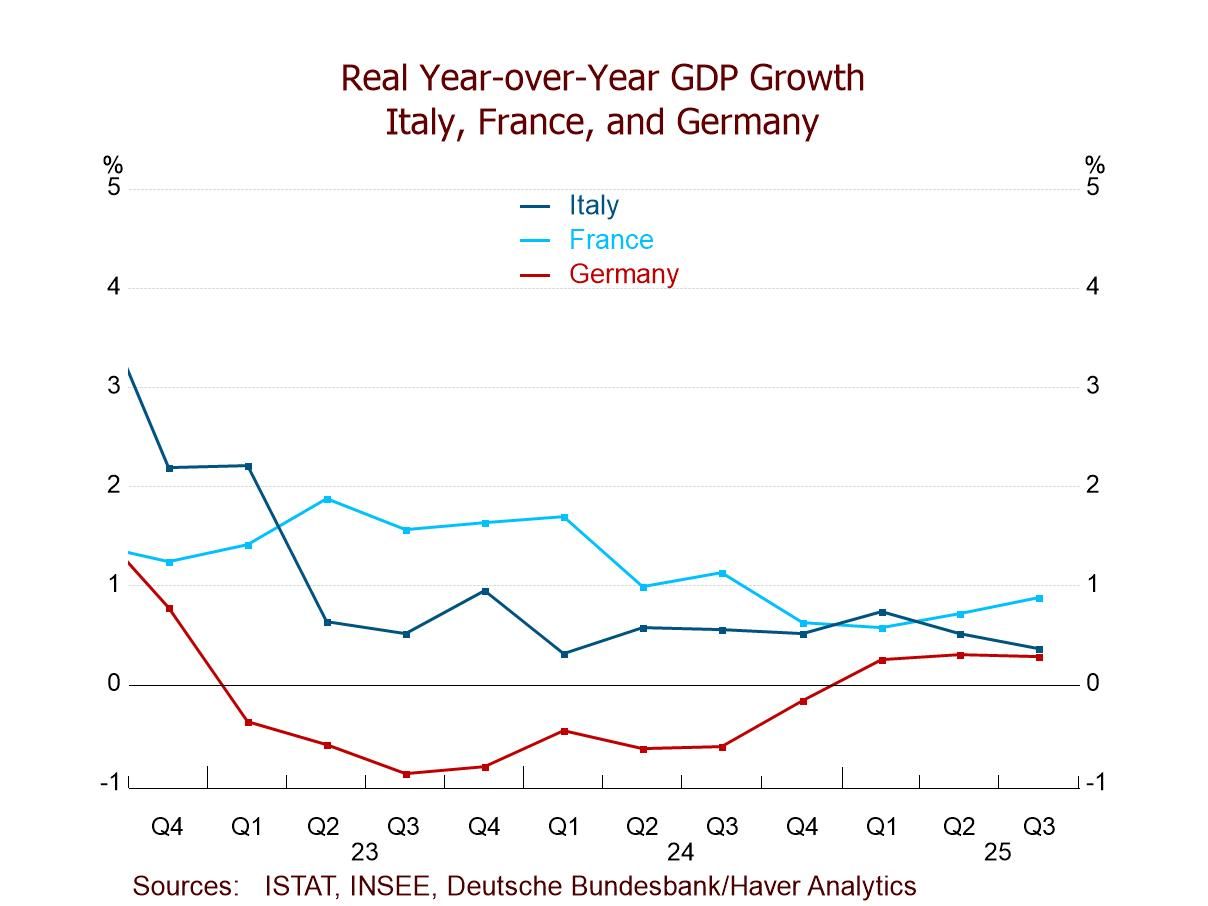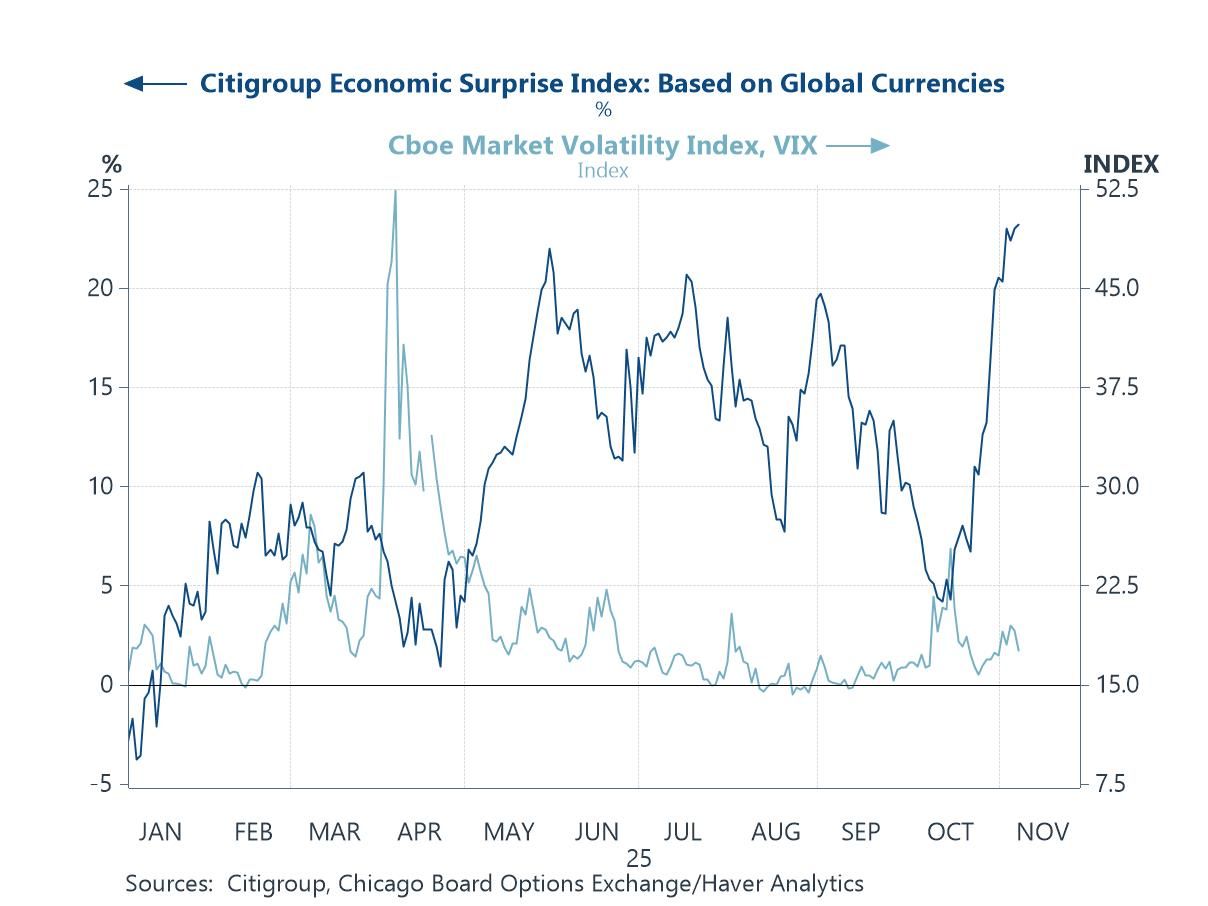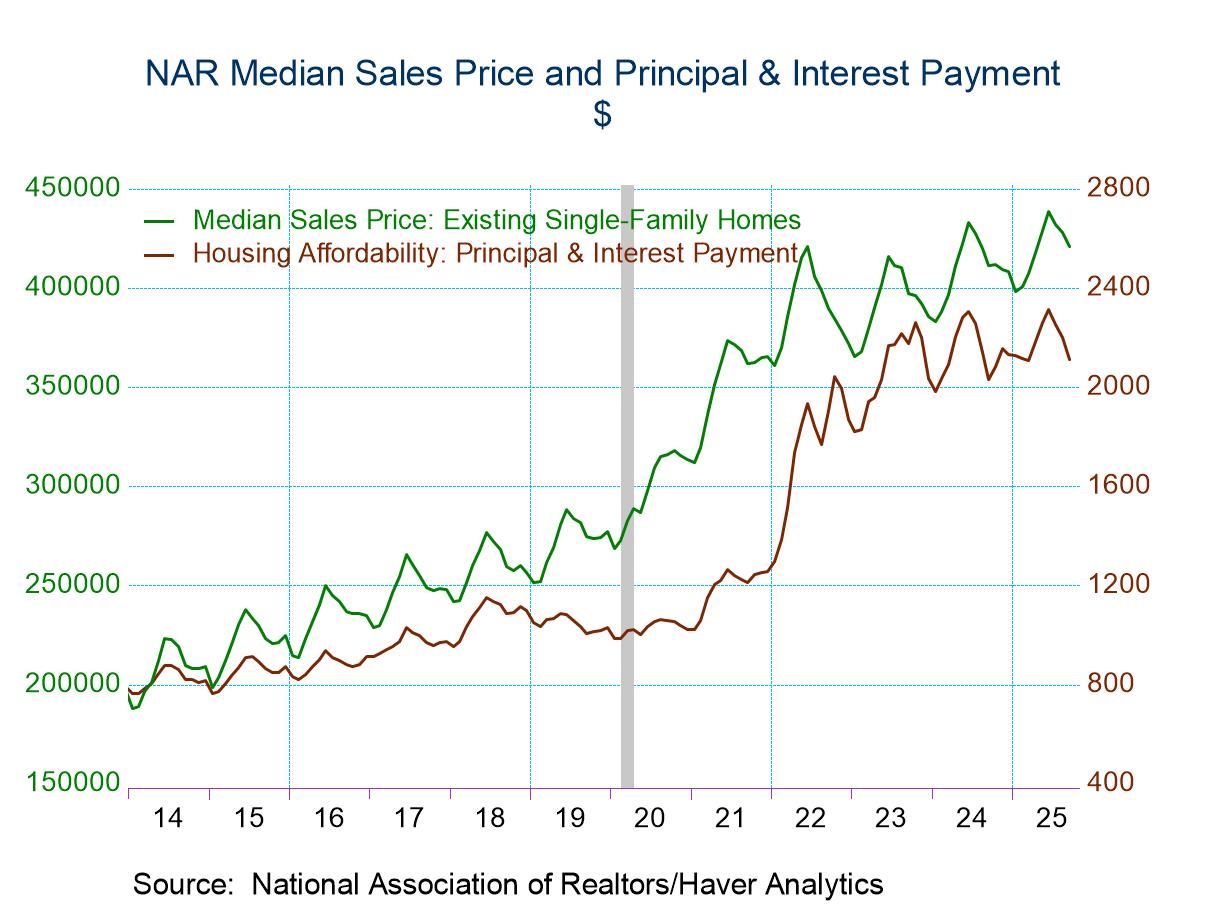U.S. Personal Spending Strengthens in January
by:Tom Moeller
|in:Economy in Brief
Summary
- Real spending gain led by goods.
- Personal income increase disappoints.
- Price index growth accelerates.


Personal consumption expenditures (PCE) increased 1.8% (7.9% y/y) during January after easing 0.1% in December, revised from -0.2%. Spending fell 0.2% in November. A 1.3% rise had been expected in the Action Economics Forecast Survey.
In January, real PCE increased 1.1% (2.4% y/y) after falling 0.3% in both of the prior two months. Real spending on durable goods increased 5.2% (0.5% y/y) last month after a 1.7% decline. Spending on motor vehicle & parts surged 11.9% (-1.7% y/y) after falling 3.3% in December. Real spending on furniture & appliances gained 2.0% (0.6% y/y) last month after falling 1.1% December. Real spending on recreational goods & vehicles improved 2.1% (2.8% y/y) following a 0.2% easing.
Real spending on nondurable goods rose 0.5% (-1.4% y/y) in January after declining in each of the prior three months. Real apparel spending increased 3.0% (3.5% y/y) last month after weakening 1.6%. Outlays on gasoline & other energy products declined 2.2% (-0.9% y/y) following a 0.3% fall and real food & beverage outlays eased 0.1% (-5.7% y/y) after falling 0.5% in December.
Real spending on consumer services improved 0.6% last month (4.1% y/y) after holding steady in December. Recreation services buying strengthened 1.4% (7.9% y/y) in January, double the prior month’s gain while real restaurant and hotel spending surged 4.6% (14.0% y/y), after falling 0.7% in December. Real transportation services outlays rose 0.9% (4.1% y/y) after rising 0.4% in December, while real housing & utilities expenditures fell 0.6% (-0.2% y/y) after a 0.1% uptick. Real healthcare spending gained 0.4% last month (4.0% y/y) after rising 0.6%. Financial services & insurance expenditures improved 0.3% (2.9% yy) in January after easing 0.1% in December.
Personal income rose 0.6% (6.4% y/y) during January, half the expected 1.2% rise, after increasing 0.3% in December, revised from 0.2%. The gain reflected a 0.9% increase (7.9% y/y) in wages & salaries after two consecutive 0.4% gains. Proprietors' income rose 0.4% (6.6% y/y), the same as in December. Rental income strengthened 1.5% (12.1% y/y) in January following a 1.0% December rise. Receipts on assets rose 0.5% (5.3% y/y) as interest income edged 0.1% higher (8.3% y/y), but dividend income increased 0.9% (2.1% y/y). Personal transfer receipts eased slightly (+3.5% y/y) after a 0.1% uptick.
Disposable income rose 2.0% (8.4% y/y) in January following a 0.4% December rise. Taxes fell 7.9% (-5.1% y/y). Real disposable earnings rose 1.4% (2.8% y/y) after a 0.2% December rise.
The personal saving rate rose to 4.7% in January, the highest level in twelve months. The level of personal savings increased 7.1% last month and increased 8.7% y/y.
The PCE chain price index increased 0.6% (5.4% y/y) following a 0.2% December rise, revised from 0.1%. The index excluding food & energy also rose 0.6% (4.7% y/y), the largest increase since August as it followed a 0.4% December rise. Goods prices rose 0.6% (4.7% y/y) while services prices also gained 0.6% (5.7% y/y). The core services price index excluding energy & housing increased 0.6% (4.6% y/y), the same as in December. Energy prices rose 2.0% (9.6% y/y) after falling 3.6% in December while food prices rose 0.4% (11.1% y/y), the same as in December.
The personal income and consumption figures are available in Haver's USECON database with detail in the USNA database. The Action Economics forecasts are in AS1REPNA.


Tom Moeller
AuthorMore in Author Profile »Prior to joining Haver Analytics in 2000, Mr. Moeller worked as the Economist at Chancellor Capital Management from 1985 to 1999. There, he developed comprehensive economic forecasts and interpreted economic data for equity and fixed income portfolio managers. Also at Chancellor, Mr. Moeller worked as an equity analyst and was responsible for researching and rating companies in the economically sensitive automobile and housing industries for investment in Chancellor’s equity portfolio. Prior to joining Chancellor, Mr. Moeller was an Economist at Citibank from 1979 to 1984. He also analyzed pricing behavior in the metals industry for the Council on Wage and Price Stability in Washington, D.C. In 1999, Mr. Moeller received the award for most accurate forecast from the Forecasters' Club of New York. From 1990 to 1992 he was President of the New York Association for Business Economists. Mr. Moeller earned an M.B.A. in Finance from Fordham University, where he graduated in 1987. He holds a Bachelor of Arts in Economics from George Washington University.






 Global
Global